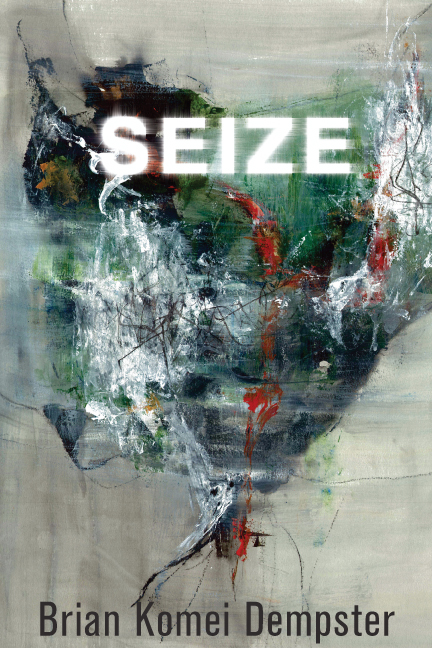Seize by Brian Komei Dempster is about Dempster’s journey as the father of Brendan, a child with severe disabilities, and it is also about his reevaluations of his world and place in it after he has learned what love and pain is through the lens of fatherhood. Among other medical issues, Brendan suffers from epilepsy, which causes seizures, and Dempster is often placed in a struggle to save his son’s life. While Brendan is a major figure in the collection, Seize is an inside and honest look at the caregiver’s struggle, which in Dempster’s case is endless, as he spends his days making sure that his child is safe and cared for.
The pain of caregiving is heightened because of the degree of love the narrator has for his son. We are often given small moments of serenity that create the joy that can be found in a family. For example, in the poem “Field,” the narrator plays catch with his son as he tries to teach his son the word “catch”:
. . . Catch
I repeat. Eyes
Wavering, you sit, reach
out.
Dempster is able to bring out the nuance from small moments like this while at the same time, he is not pollyannaish about caregiving. What he and his partner are going through is tough and frustrating. He writes about the typical day with his son. Brendan
and hates most
things. On some
spectrum . . .
He chases robins, flings
our clothes. Against chairs
pounds tennis
ball. Claws tabletops
for dishes, tosses
spoons, thumps his feet
to funk
beat.
Much of this is the chaos of having a child, but dialed up because of the danger that it poses and the endlessness of it. What he’s capturing here is the complexity of his situation. As he writes at the poem’s conclusion:
It’s not
that simple. To love
him so much. To hate
just some of it.
Brendan and Dempster’s love of him seems to have heightened his understanding of intolerance and violence because Brendan faces so much of it. It is not as though Dempster has ever been unaware of it. As a half-Japanese person, Dempster has been a victim of Asian hate. Now, discrimination takes on a new facet as he watches his son suffer it. He thinks back to his childhood experiences with hatred, growing up next to a neighbor who openly uses a racist term to describe Japanese people despite the fact that Dempster’s mother is Japanese. Dempster’s father confronts him, asks him not to use the term. The best he will commit to is this: “Mr. F’s reply I won’t say it around your wife.” This of course suggests that he finds no problem with the term or the racism; he’s just trying to keep some peace in the neighborhood. He thinks back on a childhood friend, remembering how hard his father was on him. In “Target Practice,” Derek’s father puts catcher’s gear on Derek, ties his hands behind his back, and has the baseball team throw baseballs at him as hard as they can, perhaps in a wildly misguided attempt to teach him courage. “Throw hard your father coaches us, Straight / at his face.” These are observations Dempster might have made previously to his fatherhood, but there is a sensitivity to these poems that is astounding. He seems to see the world in a new way, and the juxtaposition of these poems to those about his son, helps to bring to light the cruelty that we all seem capable of.
Seize is a powerful exploration of what it is to be a father who worries about a child and tries as hard as he can to be loving and then wonder if he’s doing a good job. Anyone with intelligence, compassion, and empathy worries that they are not doing right by the people around them, those who love them. Dempster’s work is certainly compassionate and beautiful and lets us into the world of love in some of its most extreme moments.

